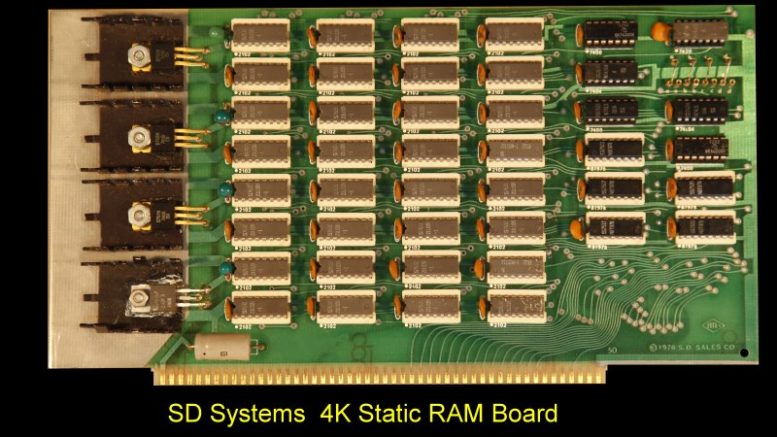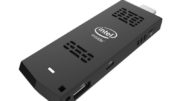Hey, who else remembers the days when 512 kilobytes of memory was a lot? Those days are long gone. These days, a personal computer needs a lot, lot more. Without further ado, here’s my recommendation for the amount of memory that a personal computer needs in 2021:
16 gigabytes. Yes, really
Windows 10 says it will run with 4GB of memory. And it will. Depending on what you do with it, that may be a satisfying experience. Most likely it won’t be. If your computer has a traditional hard drive, you’ll see long load times and startup times that may want to make you run headfirst into a wall. Even with a solid state drive, you may find a lot of problems loading or switching apps.
Why so much?
The answer lies with greedy apps. Even though Google Chrome has made big advances lately in memory management, it’s still a hog. Open more than a few tabs and you’ve eaten up 4 gigabytes. It looks like Microsoft’s Teams is an equally large memory hog. The app that looks to take over all your office communications does so by eating up 2-4 gigabytes of memory when all features are being used.
With the operating system taking up its share of about 3 gigabytes of memory, it’s easy to see how you’ll blow past the capabilities of an 8GB computer. It’s best to start with 16. Remember that if you have a laptop or compact desktop, the memory’s probably not upgradeable. It’s best to buy what you need right away.
Why does everything take up more memory than it used to?
The first version of Word for Windows would run pretty satisfactorily in one megabyte of memory. The same is true for the first version of Excel for Windows. How is it that office apps now take 1,000 times more space? Are you 1,000 times more efficient when using them? Are they 1,000 times faster? Of course the answer is no.
To some degree, these apps have become more capable. They have lots and lots more features. It’s very possible you don’t use those features, but they are there. The biggest reason is that something like Word isn’t one app, but many.
Most modern apps are made up of thousands of modules and libraries. This is done so that different parts can be upgraded when there’s a security or performance concern. Upgrades happen so often that you literally don’t even notice them. Sometimes they’re once a week, sometimes even more. Breaking up the apps into so many bits makes them more stable and makes it possible for a large programming team to create them. But, it does also increase memory requirements.
Why isn’t this a problem with Chromebooks, phones, or tablets?
People don’t even talk about how much memory is on a phone. That’s how unimportant it is. Your phone just doesn’t do as much as a general-purpose PC, and it doesn’t do it all at the same time. That’s the real reason that memory isn’t a big issue on phones.
If you’re looking for a Chromebook, you might look at the amount of memory, though. The browser on a Chromebook is just as much of a memory hog as the one on your PC. You’ll get a lot more performance out of a Chromebook with 8GB or more of memory.
You may be thinking that you can do the same tasks on a phone, tablet, or Chromebook that you can do on a general-purpose PC. If that’s true, you should definitely use a device like that. In the next several years, I think you’ll continue to see more and more people using devices like that for general office work. The people who really need PCs, like creatives, gamers, and IT professionals, are going to move up the ladder to increasingly competent PCs.
While we’re talking about it…
If you’re in the market for a new PC, there are a few more things you should consider. You can get very capable devices now for $350 – $500, but you should probably avoid those low-priced devices. If you really don’t use a computer a lot you can probably do better with a Chromebook or tablet. If you do sit in front of a computer all day those low-priced models will lead to nothing but frustration.
If you depend on a computer, it should have 16GB of RAM to be sure, but there are some other factors to think of to be sure. Every computer today should use a solid-state drive. Mechanical hard drives are slow and loud, and they have no place in a modern PC, except maybe for secondary storage.
You should also make sure that any computer you use has enough display resolution. If you’re using a laptop screen or other small screen, the absolute minimum should be HD (1920×1080 or something close to it.) If you use a large monitor, you’ll be disappointed sooner or later if it doesn’t output 4K or more. Consider moving from multiple monitors to one large monitor. This is often easier to work with and easier for a computer to manage. If you do need multiple monitors, make sure your computer supports it. You can connect a monitor to a USB port with an adapter, but the result is often slower and buggier that it would be if you had more than one display output.
Solid Signal doesn’t sell computers…
but we do sell the best selection of computer accessories. You’ll find everything you need whether you work from home or from the office. Browse the great selection or call us at 888-233-7563 and we’ll help you find everything you need!





